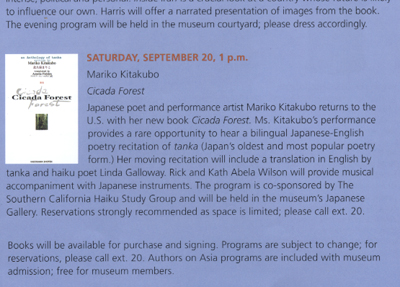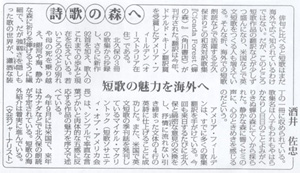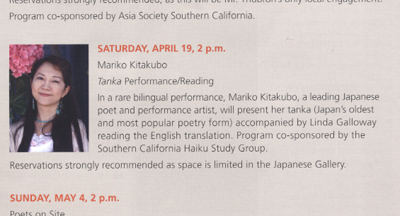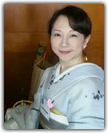Contemprary Tanka Poet Mariko Kitakubo.
お知らせ
Information on my reading event on Sept. 20th together with my latest bilingual anthology “Cicada Forest” was introduced in Pacific Asia Museum Newsletter.

Sunday, July 20, 2008
| Although TANKA has not gained as much popularity as HAIKU overseas yet,more and more TANKA poems are translated, and the number of the poets who compose English TANKA is definitely increasing. Mariko Kitakubo's new collection, "Cicada Forest", has been published recently. |
 |
Translation into English was done by Ms. Amelia Fielden, a superb translator of Japanese literature, awarded Donald Keen Prize.
Mr. Michael McClintock, president of the Tanka Society of America,praise Mariko's work very highly in the preface he wrote to "Cicada Forest."
September this year, Mariko performs reading in the U.S.A., and in 2009, in some other countries including Canada.
Sunday, July 6, 2008
Information on my reading event on April 19th was introduced in Pacific Asia Museum Newsletter.

Saturday, April 19, 2008

 Prev
Prev